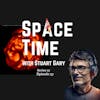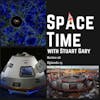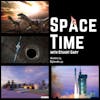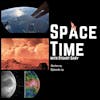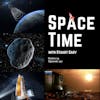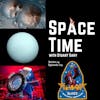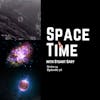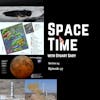51: It’s Asteroid Day

The world's premiere Astronomy and Space Science News podcast
NEW! Help support SpaceTime and keep Stuart fed (you can also get access to bonus content, a commercial-free version of the show…and more as we think of it).…by becoming a patron. Become a part of our team... details at our Patreon page... https://www.patreon.com/spacetimewithstuartgary With this episode we salute: Jeff Thieleke David Guinness Peter Scott Thank you for your support…it’s very much appreciated.
Stream Episodes on demand from www.bitesz.com or www.spacetimewithstuartgary.com (both mobile friendly)
*It’s Asteroid day June 30 is asteroid day – marking the anniversary of Earth’s largest asteroid impact in recorded history, the 1908 Tunguska event when an asteroid airburst about ten kilometres above the Tunguska river region of Siberia in eastern Russia. The blast devastated 2150 square kilometers of forest leaving some 80 million trees flattened and reduced to matchwood and lit up the night skies in London -- a third of the way around the globe.
*The effects of a major asteroid impact on Earth A new study has concluded that when a big asteroid hits the Earth violent winds and shock waves are likely to cause the greatest number of fatalities. The study explored seven effects associated with asteroid impacts--heat, pressure shock waves, flying debris, tsunamis, wind blasts, seismic shaking and cratering.
*NASA’s mission to the metallic world of Psyche NASA’s Discovery mission to a unique metallic asteroid, has been moved up by a year with the launch now slated for the middle of 2022. The earlier launch date means a more efficient trajectory – bringing the planned arrival time forward to 2026 -- four years earlier than the original timeline.
*Einstein right again A little more than 100 years after Professor Albert Einstein developed his theory of general relativity, researchers have finally been able to use its laws to directly determine the mass of a white dwarf star by the gravitational bending of light. In a 1936 paper in Science, Einstein lamented that there was no hope of directly determining a white dwarf’s mass by this method – even though theoretically it should be possible.
*Japanese H-IIA satellite launch A Japanese H2A rocket has blasted into orbit carrying the nation’s second Quasi-Zenith Satellite navigation system spacecraft. Lift off for the Michibiki-2 satellite occurred under cloudy skies at the Tanegashima Space Centre south of Tokyo.
Email: SpaceTime@bitesz.com
Join our mailing list at http://www.bitesz.com/join-our-mailing-list
If you're enjoying SpaceTime, please help out by sharing and telling your friends. The best recommendation I can get is one from you. Thank you...
#astronomy #space #science #technology #news #astrophysics #NASA #asteroids #China
Learn more about your ad choices. Visit megaphone.fm/adchoices
Support this show http://supporter.acast.com/spacetime.
See acast.com/privacy for privacy and opt-out information.
The Astronomy, Space, Technology & Science News Podcast.
New to SpaceTime with Stuart Gary?
Here are some great episodes to start with.







































